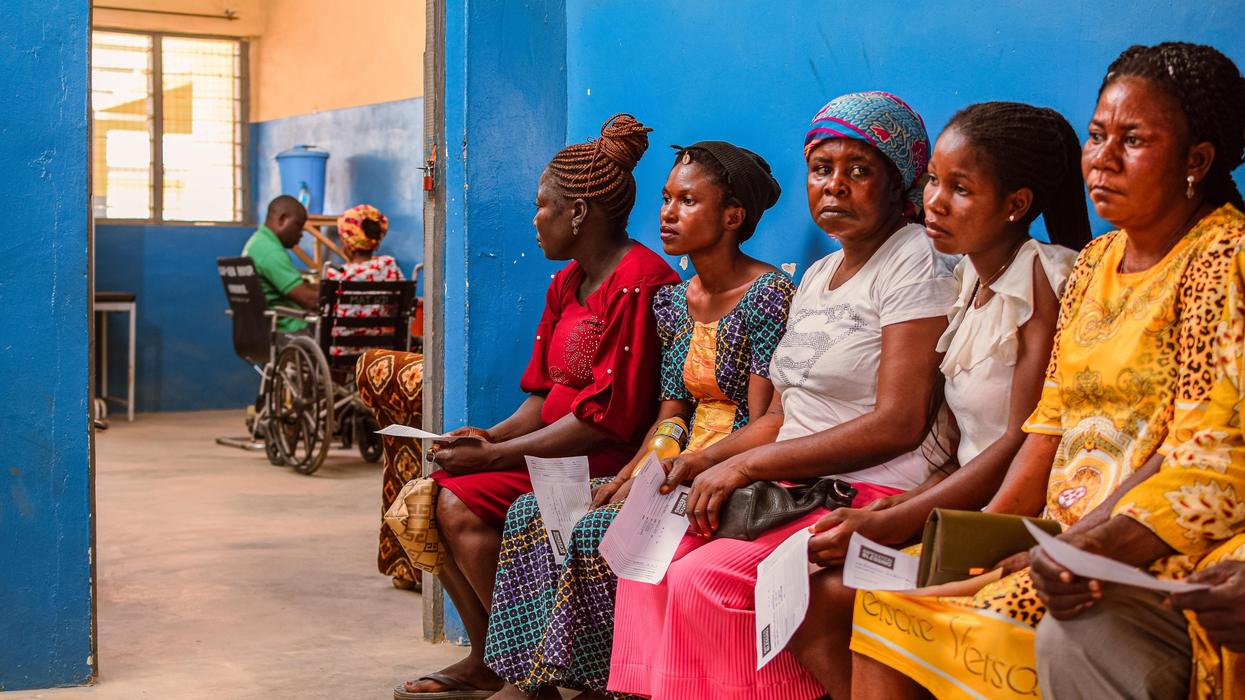The recent appointment of a caretaker government in Sudan suggests that Lieutenant-General Abdel-Fattah al-Burhan — the de facto military ruler of Sudan since the coup of October 25, 2021 — and his allies remain confident that they will be able to dictate the transition process to nominal civilian rule by buying themselves time.
This appointment came after Burhan’s meeting late last week with U.S. Assistant Secretary of State for African Affairs Molly Phee and Washington’s new Special Envoy for the Horn of Africa David Satterfield, in which the military strongman insisted he was open to an inclusive dialogue with the Sudanese opposition and a civilian-led government to complete the transition.
That openness results from several factors. First, Burhan appears to believe he will succeed in wooing various opposition actors to his side with the help of the United Nations Integrated Transition Assistance Mission in Sudan (UNITAMS).
Second, the resignation of Prime Minister Abdalla Hamdok — who was initially placed under house arrest by the coupists, and then agreed to a power-sharing scheme with Burhan only to resign again on January 2 amid mass protests — resulted in a loss of international legitimacy that Burhan and his coalition have now been forced to try to regain.
Third, Burhan appears confident that, by recruiting key former officials of the National Congress Party that supported deposed dictator Omar al-Bashir and co-opting dissident or ambitious individuals from various opposition sectors and perhaps even from the anti-military Forces of Freedom and Change, he will have sufficiently satisfied U.S. and Western warnings against the unilateral appointment of a prime minister and civilian cabinet by the military.
This tactic bears similarities to the former Bashir regime’s divide-and-rule strategy by entering into peace dialogues with different elements of the opposition. Those dialogues were used by the Bashir regime to gain international legitimacy, while simultaneously weakening the armed opposition moments in Darfur, South Kordofan, and Blue Nile.
While perhaps satisfying Western donors, the inclusion of the previous regime’s hangovers or even parts of the FFC will almost certainly prove unacceptable to the great majority of the tens of thousands of protesters who have continued to take to the streets despite the harsh repression of the military and the police, who have been operating under a state of emergency since the initial coup. In particular, the Resistance Committees, which appear to enjoy the greatest popular support across the country, would see any attempt to co-opt the FFC as an effort to consolidate, rather than phase out, the military’s primacy.
Burhan and his allies have thus welcomed the UNITAMS initiative, as they see in it an opportunity to weaken the FFC at the negotiation table and to drive a wedge between it and the Resistance Committees. The FFC is already deeply divided between those parties that participated in Hamdok’s government, and have been demanding complete civilian rule, and those that hope to secure a role for themselves in the transition with Burhan, in some cases because they have a narrow constituency which they realize would put them at a disadvantage in elections currently scheduled for 2023, should they occur.
These divisions have made it difficult for the FFC to win the support of the Resistance Committees, and a mandate to reorient the dialogues and pressure Burhan and his allies to hand over power to complete civilian rule. The lack of unity among the civilians also plays into the military’s interest in showing the United States and the international community that the FFC is not a representative organization for the Sudanese people.
While Washington and the other “Friends of Sudan” continue to call for a civilian-led government in advance of elections, the divisions within the FFC may have to encouraged Western policy-makers to consider a renewed civil-military partnership as the most realistic path for any transition. Despite the Friends’ explicit endorsement of Sudan’s Constitutional Declaration, the 2019 agreement on civilian-military power-sharing, and the 2020 Juba Peace Agreement between the government and armed opposition groups as the bases of the remainder of the transition period, the Resistance Committees and protestors have denounced both documents given their recognition of the powerful role to be played by Burhan and the military. Burhan has thus far been able to use the two documents’ ambiguities to undermine both the civilian government and democratic reform.
Confident of the effective support of the United States and the international community, Burhan has been preparing for the post-transition elections by promoting efforts by the leaders of a renegade FFC group, the FFC-National Charter, to create an electoral bloc to support Burhan’s candidacy for president in the upcoming elections, potentially extending his rule over Sudan into the country’s “civilian” future.
The bloc also includes parties that took part in Bashir’s last government. This may strengthen Burhan’s bid for the presidency, as it could attract supporters of the former Bashir regime, estimated to number around 500,000. Key individuals from the previous regime maintain a substantial hold over Sudan’s media and economy, including the highly lucrative black market. They represent a key constituency for Burhan, and could guarantee his electoral victory.
The stakes for Burhan, and for his close ally, Lieutenant-General Mohamed Hamdan Dagalo or “Hemedti,” are high — and personal. Both seek immunity from any future prosecution for their roles in coordinating the Darfur genocide and the security forces’ well-documented massacre of protesters in Khartoum on June 3, 2019. Burhan’s desire for immunity gives him reason to do everything he can to secure the presidency if elections go forward next year. Whether he succeeds remains to be seen.
















